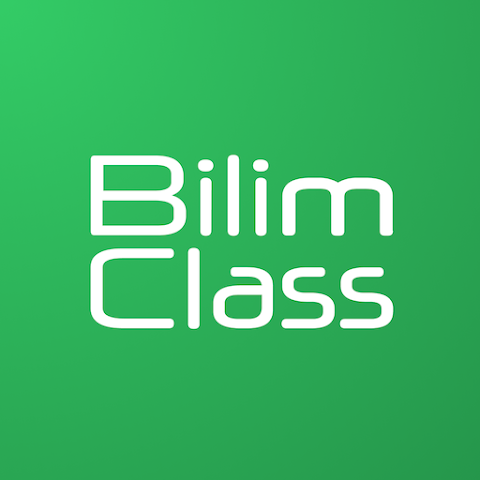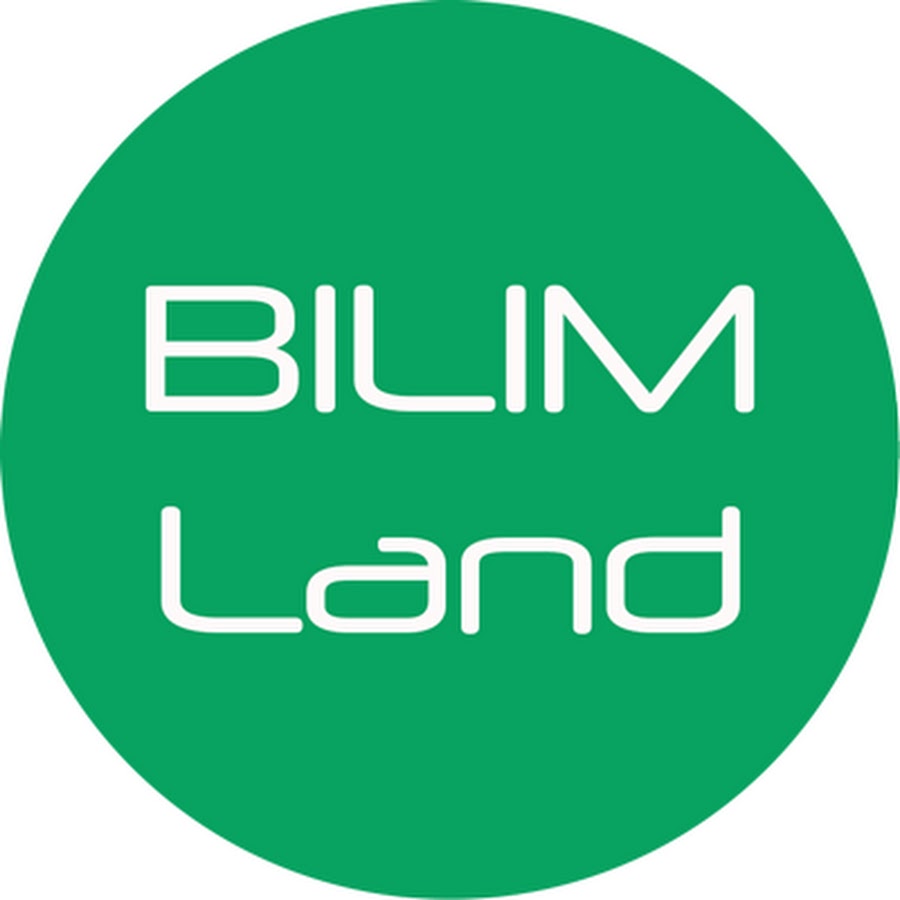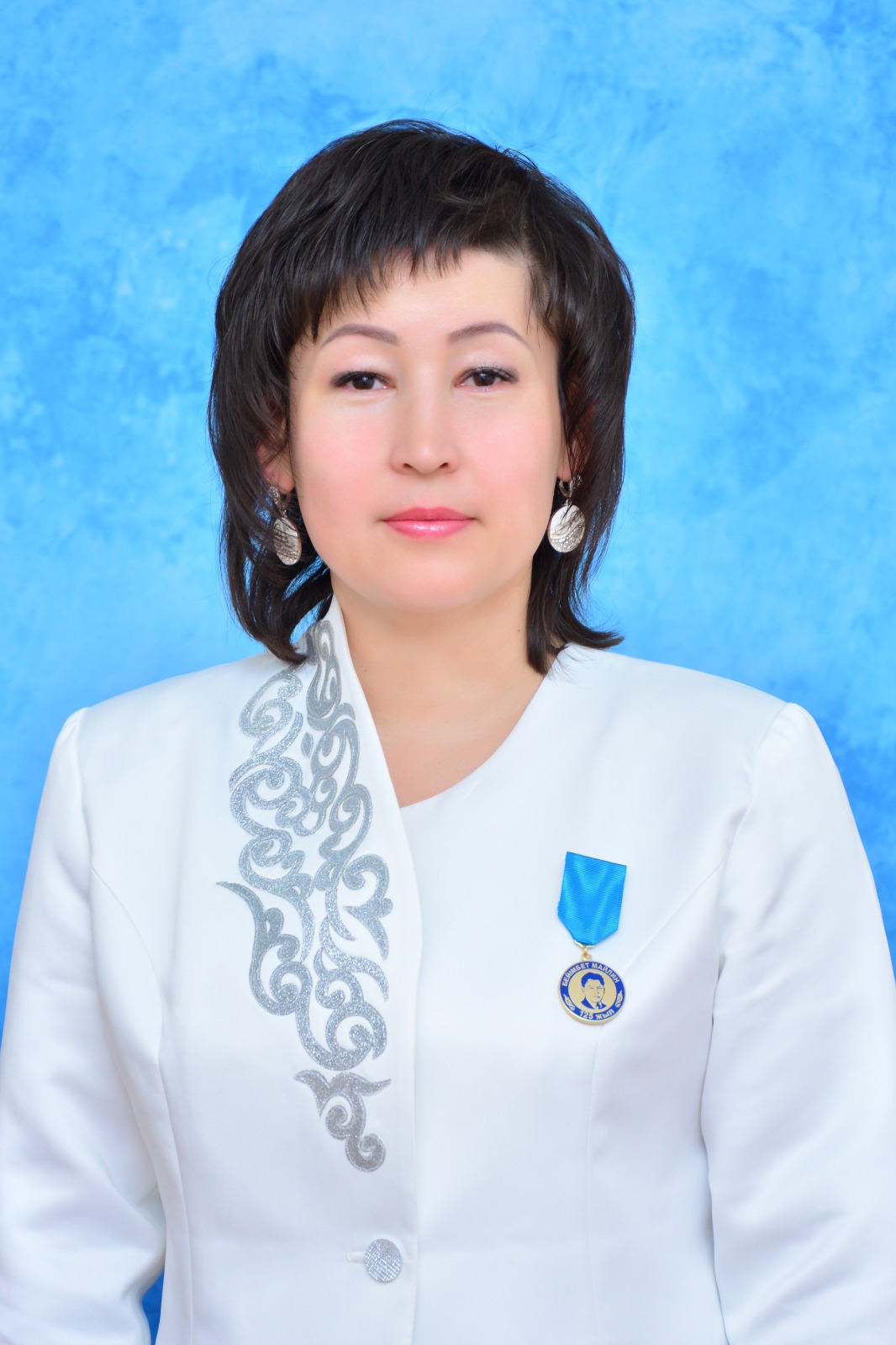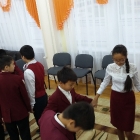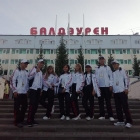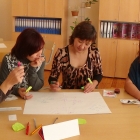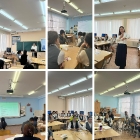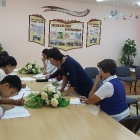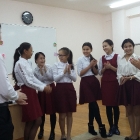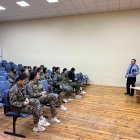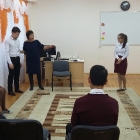Education Сабақ 2
|
LESSON: Education
appapples |
School: #7 |
|||
|
Date: |
Teacher name: Akhtyamova L. E. |
|||
|
CLASS(ES): 6А; 6В |
Number present:
present |
absent: |
||
|
Learning objectives |
Expand the students’ knowledge about education and schools. To improve speech activities of the students To motivate the students to study English. |
|||
|
Lesson objectives |
All learners will be able to:
|
|||
|
Understand the lexis of the presented material in general To read and translate the words and sentences Recognize the names of numerals |
||||
|
Most learners will be able to:
|
||||
|
Understand the lexis of the lesson in detail Recognize the words after auding and make sentences. Translate simple sentences from Kazakh into english |
||||
|
Some learners will be able to:
|
||||
|
Ready to express their meaning on the issue Make simple sentences and small texts using the new words |
||||
|
Previous learning |
Our school. Essay. |
|||
|
Plan |
||||
|
Planned timings |
Planned activities (replace the notes below with your planned activities) |
Resources |
||
|
Introduction and organizational part 8 minutes
|
I. ORGANISATION MOMENT: a) Greeting; b) talking with the pupil on duty. c) informing about the aims and the theme of the lesson 2. Warm-up :
3. Phonetic drill: this time it is the names of school subjects. Mathematics, Biology, History, Kazakh, Russian, English, Literature, Drawing, Art, Music.
|
T-S
The work with blackboard |
||
|
Middle (main part)
2 minutes
8 minutes
3 minutes
4 minutes
10 minutes
5 minutes |
II. Introduction to the main part. Pre-reading activities 4. Information and communication technologies. The teacher shows the video about the types of school. 5. Introducing new words. a) The teacher writes the words ordinary school, primary school, consist and other words on the blackboard and reads them. The students must repeat after him. Translations follow after reading. b) The students match new words with the translations in Kazakh from the chart. 6. Warming up: tell the ordinal numerals. III. Reading activities. 7. Cursory reading. a) The students find the new numerals from the text. b) Lets check and play 8. Reading the text. The teacher gives the parts of the text and students try to translate them. The teacher translates if they fail or make a lot of mistakes. 9. Grade-targeted assignments. The teacher gives different assignments to the advanced, average level students and to the students with the bad progress. The advanced should tell about their school using the new words. The students of average level have to say in English certain sentences and answer the questions. The students with poor knowledge must fill the gaps in the sentences. Complete the sentence. 1.After four years of _________school classes I went to _________school. 2.Primary and secondary schools together _________eleven years of study. 3.The primary school curriculum________ such as subject as Kazakh, Math, Drawing, Physical Training and music.
Say in English 1.Мен мектепке жеті жасымда бардым 2.Ол қарапайым ғана мектеп болатын 3.Мен төрт жылдық бастауыш мектертен орта білім беретін мектепке өттім 4.Ол он бір жылдық орта мектеп болатын
Tell us about your primary school using the new words: Ordinary, Primary, secondary. (write a short text about their school)
|
video The method
New words T-S and T-S1-S2-S3 is used
Work with table Repeat the grammar
T-S1-S2-S3
Game with ball in circle
Cards with text T-S and T-S1-S2-S3 is used Cards for average level student The 3rd level student
The 2nd level student
The 1st level student
|
||
|
5 minutes |
Reflection and Home task: The students should find one odd word from the list of 5 words. Odd one out. 1.Ordinary, secondary, capital, primary (capital) 2.Fourteen, eleven, nine, classes ( classes) 3.Kazakh, school, Math, music ( school) 4.Every, Winter, Spring, Autumn ( every)
Home task: to make a short written summary on the text including the new words and be ready to retell it. |
|
||
|
Additional information |
||||
|
Differentiation – how do you plan to give more support? How do you plan to challenge the more able learners? |
Assessment – how are you planning to check learners’ learning? |
Cross-curricular links |
||
|
|
|
||
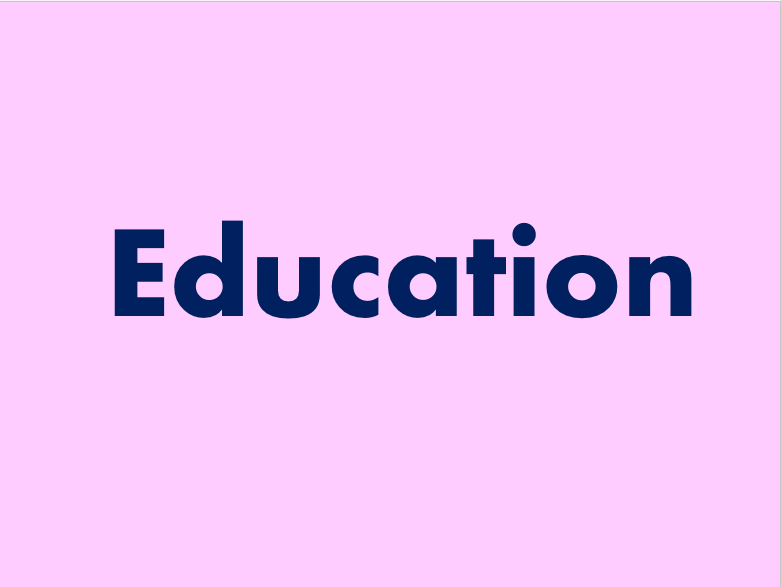
Education in GB Сабақ №3
Short term plan
Lesson plan
|
|
||||||||||
|
Lesson: Education in GB |
School: #19
|
|||||||||
|
Date |
Teacher: Ahtyamova L. E. |
|
||||||||
|
Grade: 6 A, B |
Number: |
Absent |
||||||||
|
Learning objectives that this lesson is contributing to |
T Expand the students’ knowledge about education and schools To improve speech activities of the students To motivate the students to study English |
|||||||||
|
Lessonobjectives |
All learners will be able to: Understand and follow instructions Understand the lexis of the presented material in general To read and translate the dialogues Mostlearners will be able to: Understand the dialogues of the lesson in detail Recognize the words after auding and make sentenceusing them Some learners will be able to: Make simple dialogues using the situation Correct the mistakes of their classmates |
|||||||||
|
Previouslearning |
||||||||||
|
Plan |
||||||||||
|
Plannedtimings |
Plannedactivities |
Resources |
||||||||
|
Beginning 1 min
4 min
3 min |
I. Organization moment Greeting. Informing about the aims and the theme of the lesson II. Warm-up. «Black Box»thepupils must ask questions for teacher and must know what is lying in box. Example: It’s big or small? III. Game «Snake»thepupils must find the words from chart Nursery school, basis, timetable, science, foreign language, take an exam, various, qualification, further, necessary, highest, lowest IV. Check-up homework Pupils must retell the text about Education in GB and use helping structure |
T-P
The work with blackboards
P1-P2-P3-T |
||||||||
|
Middle 7 min
3 min
9 min
8 min
|
V.Introduction to the main part. a) Teacher read the dialogue, pupils listen andshould understand what is this dialogs about. b) Pupils should match the sentence with their translation in Kazakh. VI. The work in pairs
Example: What’s your name? Where are you from? Which class are you in? What is your favorite subject at school? What subject do you have today? Where is situated your English classroom? VII. Level –targeted assignments. The teacher gives different assignments to the advanced, average level pupils and to the pupils with the bad progress. The advanced must write a test. The pupils of average level match the beginnings of the sentences with their endings. The pupils with poor knowledge must differ true statements from false ones. If they are false, say your arguments. A-level «Test» I. Find the right answers: 1. What can you tell me…..the education in Britain? a) to; b) about; c) for; d) at 2. What subjects…..children learn at Primary School? a) are; b) was; c) does; d) do 3. At Primary School children learn to read and ….. and the basis of arithmetic. a) rate; b) rite; c) right: d) write 4. School is ……..till the children are 16 years old. 5. Then they may take …exam in various subjects in order to have….qualification. a) an, a; b) an, the; c) the, the; d) the, a 6. What is ….mark you can receive in school? a) most high; b) the higher; c) the highest; d) the high B-level »«True or False» II. Indicate if statements are true or false: 1. In England and Wales compulsory school begins at the age of ten. 2. At Primary School children learn to read and write and the basis of arithmetic. 3. They learn Kazakh, Russian and psychology. 4. School is compulsory till the children are 16 years old. 5. Then they may not take an exam in various subjects in order to have a qualification. 6. The highest mark they may take in school is “A”. C-level«Beginnings and endings» III. Match the beginnings of the sentences with their endings 1) In England and Wales compulsory school begins at the age…... 2) At Primary School children learn……. 3) We learn geography, history, science, religion and…… 4) Then children go to Secondary School, when they are 11or 12. 5) Then they may take an exam……. b)……when they are 11or 12. c) ….. in various subjects in order to have a qualification. d)……of five, but before that age children can go to a nursery school. e) …....and, in some schools, a foreign language. f) …....to read and write and the basis of arithmetic. |
The work with
P1-P2, P3-P4
To give pupils cards with situation
Cards for average level pupils
The 1st level pupils
The 2nd level pupils
The 3rd level pupils |
||||||||
|
End 4mins |
VIII. Reflection and Homework The pupils must find the names of school with the pupils ages.
Good bye |
The work with cards |
||||||||
|
Additional information |
|
|
|
Differentiation – how do you plan to give more support? How do you plan to challenge the more able learners? |
Assessment – how are you planning to check learners’ learning? |
Health and safety check |
|
|
|
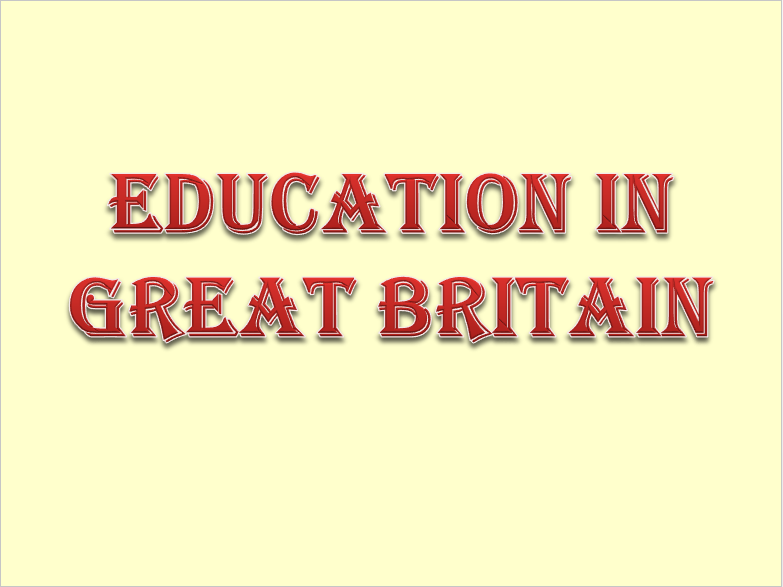
Kazakh national cuisine Сабақ № 1
|
LESSON: Kazakh national cuisine |
School: #7 |
||||||
|
Date: 25.10.2016 |
Teacher name: Ahtyamova L. E.
|
||||||
|
CLASS: 6А, В |
Number present: |
absent: |
|||||
|
Learning objectives that this lesson is contributing to |
Educational: a) to master new lexis and its use in speech; b) to encourage students to form dialogues and to express their opinions; Developing: a) developing logical and critical thinking; b) improving the students’ speaking, listening, writing habits;
|
||||||
|
Lesson objectives |
All learners will be able to:
|
||||||
|
Know and translate the names of traditional Kazakh foods and drinks; Make simple sentences with constructions with new words |
|||||||
|
Most learners will be able to:
|
|||||||
|
Make correct sentences with the words and word combinations Argue against wrong statements |
|||||||
|
Some learners will be able to:
|
|||||||
|
To correct mistakes of other students and help them Use constructions “much, many, a lot of, few…” without any mistakes. |
|||||||
|
Previous learning |
Good manners |
||||||
|
Plan |
|||||||
|
Planned timings |
Planned activities (replace the notes below with your planned activities) |
Resources |
|||||
|
5-7 minutes
|
ORGANISATION MOMENT: a) Greeting; b) talking with the pupil on duty. c) informing about the aims and the theme of the lesson d) Phonetic exercise: the teacher writes the English proverb “The proof of the pudding is in the eating”. Then he wipes out words until on word is left. Finally, the students read “an invisible” sentence. |
|
|||||
|
The new theme And exercises to revise previous themes 26-33 minutes
|
At first, the teacher divides the class into 3 or 4 groups. All the tasks and texts will be as the kind of competition among the groups.
1. The students are given charts and they should match the names of Kazakh foods with their definitions. 2. The students read and translate the text. They are given extracts of the text and should give as correct translation as possible. 3. The next task is to give English equivalents of Kazakh word combinations which the teacher will say. 4. The students try to make a chart using the teacher’s information 5. The students try to make cinquains to the theme “Kazakh foods” E.g. a) kazy; b) tasty, delicious, c) to prepare, to eat, to cut; d) kazy is a traditional food, e) meat |
|
|||||
|
6-8 minutes |
Reflexion the students are given Kazakh equivalents of words and word combinations on the previous themes and find their English equivalents. 1. Көп адам қазы жегенді жақсы көреді. 2. Анам бешбармақ пісірді . 3. Маған біраз құрт бересіз бе? 4. қымыз бен шұбат денсаулыққа пайдалы тағамдар. |
|
|||||
|
Additional information |
|||||||
|
Differentiation – how do you plan to give more support? How do you plan to challenge the more able learners? |
Assessment – how are you planning to check learners’ learning? |
Cross-curricular links |
|||||
|
|
|
|||||



